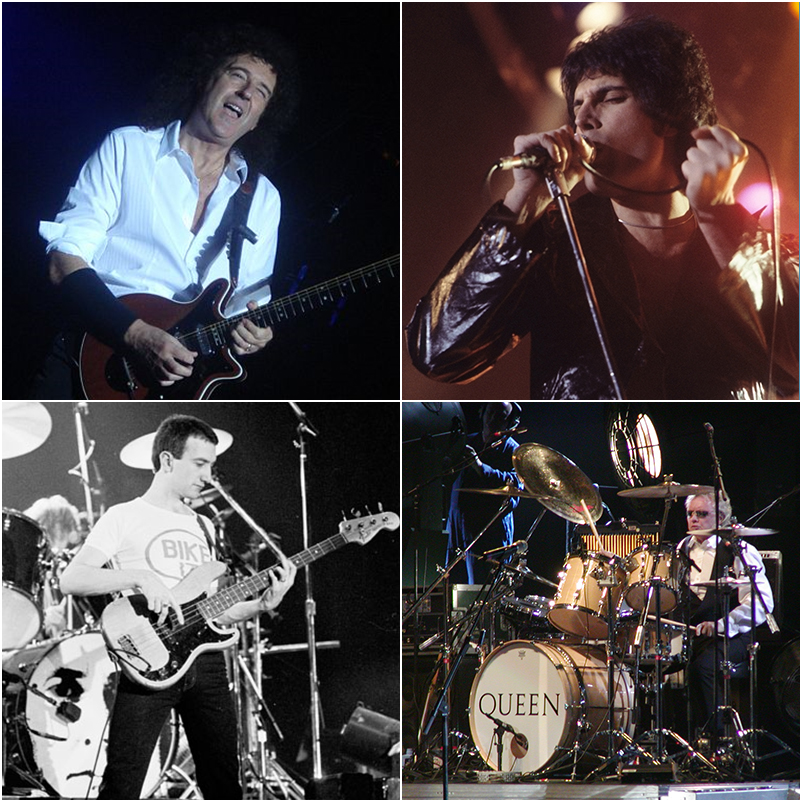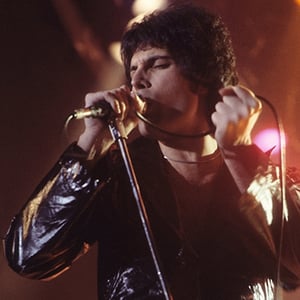
With box office sales reaching $142 million in the US and almost $600 million worldwide, the movie Bohemian Rhapsody has captured the hearts and minds of movie goers everywhere. Based on the story of the British rock band Queen, Bohemian Rhapsody chronicles the nascent band from its early days playing clubs to its rise into megastardom.
Comprised of four superstar musicians, the band was unquestionably led by frontman and vocal virtuoso Freddie Mercury. Much like The Beatles did a decade earlier, Queen leveraged the unique personalities of each member to create a sound that changed the music landscape forever.
With millions of musicians in the world, what made Queen so special? Authenticity, emotion and energy is what set Queen apart from everyone else. Whether it’s the euphonic harmonies of the song Bohemian Rhapsody or the unparalleled energy the band delivered during their live concert performances, Queen was the true embodiment of emotion and energy, with a side of style and class.
Creating the band’s sound

Queen is a study in how disparate styles can come together to create something bigger than the sum of its parts. In many ways, the differences in the band were showcased in how Freddie’s style contrasted with the other three band members.
Freddie was a showman who clearly envisioned the big picture, imagining a song from its conception to its stage delivery. Incorporating classical music training into his songwriting, Mercury challenged the status quo of the rock world by delivering a sound that possessed elements of ballads, rock and opera.
Brian May’s musical palate was as vast as his intellect, spanning from classic hard rock such as “Hammer to Fall” to the softest of ballads found in the beautiful melodies of “Love of My Life.” Drummer/vocalist Roger Taylor liked to inject a little humor into his writing as is shown in the song “I’m In Love With My Car.” Bassist John Deacon was a frequent songwriting contributor, penning some of the band’s bigger hits including “You’re My Best Friend” and the unmistakenly bass-driven “Another One Bites the Dust.”
Challenging the status quo
Often rejected by record company execs for not being commercial enough, songs like Bohemian Rhapsody redefined what commercial became. At the time the song was recorded, there were no six minute radio hits, no opera parts in rock and certainly no music videos.
Queen wanted to break free from what was previously considered “radio acceptable,” fully believing there was a market for their new brand of rock. They rightfully believed that if the public had a chance to experience the music, they would enjoy it.
For a song “certain to fail” according to record company execs, Bohemian Rhapsody became the third most popular song in the history of the British charts based on sales, having reached the #1 spot in two separate decades (on its release and upon Mercury’s death) and charting on the Billboard Hot 100 in an unheard of three different decades (70s, 90s, 10s).
Collaboration is king
It’s safe to say that Queen left an indelible mark on the music world. The bigger question is what propelled Queen to produce music that became so long lasting and impactful? A strong argument can be made that the unique personalities of the band members is what created the greatness.
While no one will doubt that Mercury was the band’s driving force, every member of the band was a contributing songwriter. The future astrophysicist May was the yin to Mercury’s yang, with Mercury’s soft melodies being sonically balanced by May’s raging power chords. When it came to songwriting, they were very collaborative, with different members taking the lead at different times, creating unique, memorable songs that spanned the musical gamut. When the band performed live, however, the three members of the rhythm section were willing to take on more of a supporting role role so that Mercury’s star could shine the brightest.
History has seen many bands crash and burn with a dominant personality in the mix. However, May, Taylor and Deacon understood that letting Mercury take the lead on stage - and often in the studio too (i.e. Bohemian Rhapsody) - brought out the best from the vocalist. The band’s epic performance at Live Aid, considered by many to be the quintessential rock performance of all time, showed that the bigger the stage, the better the band performed.
As self-assured as Mercury was, it was what the others contributed that made Queen the powerhouse they were. The commercial failure of Mercury’s solo album, made without the help of his trusted bandmates, confirmed this point. It proved that even the most creative minds have their limitations and often it takes another voice or idea to elevate something from good to great.
What motivated Queen?
Queen believed in pushing the limits and creating a new definition of what was considered to be mainstream. The band understood that with their supreme songwriting and performing capabilities, they could accomplish just about anything. Freddie had a commanding personality, wanting to be the center of attention at all times. The spotlight energized him. The others were smart enough to realize that Mercury was a bonafide star and that letting him shine was very much to the band’s benefit.
John Deacon seemed to avoid the spotlight, instead preferring to be the foundation on which the songs were built. Slow and steady, Deacon’s bass lines were the glue that held everything together. Roger Taylor was a showy drummer and a good vocalist in his own right. While the press would regularly gravitate toward Mercury during interviews, Taylor would frequently chime in to remind the eager press that Queen, in fact, consisted of four equal members.
While Mercury attracted attention with his showmanship and stage acrobatics, May attracted attention with his style and guitar virtuosity. With a precise attention to detail, May performed like a master craftsman, creating both a style and a sound that was unlike any that came before or after him.
Wanting to be unique, May and his father Harold built an unconventionally-shaped guitar that became known as the Red Special. It produced a thick, bright sound which instantaneously conveyed the Queen sound. Playing with a Sixpence instead of a guitar pick, May created his unique, ear-piercing squeal that a traditional plastic pick could never produce. To say May was detail-oriented in his approach would be quite the understatement; he was nothing short of a guitar maestro.
The show must go on
The members of Queen had an insatiable appetite for songwriting and performing. Attention to the finest details is what set this band apart from other acts of the time that were more consumed with sex, drugs and everything else that came with the rock and roll lifestyle.
Queen was a supergroup before the term was even coined. Understanding that, through collaboration, they could achieve virtually anything they wanted to, the individual members sacrificed a certain level of personal fame and fortune in exchange for a lasting legacy for the band as a whole. They were a band in the truest sense of the word.


